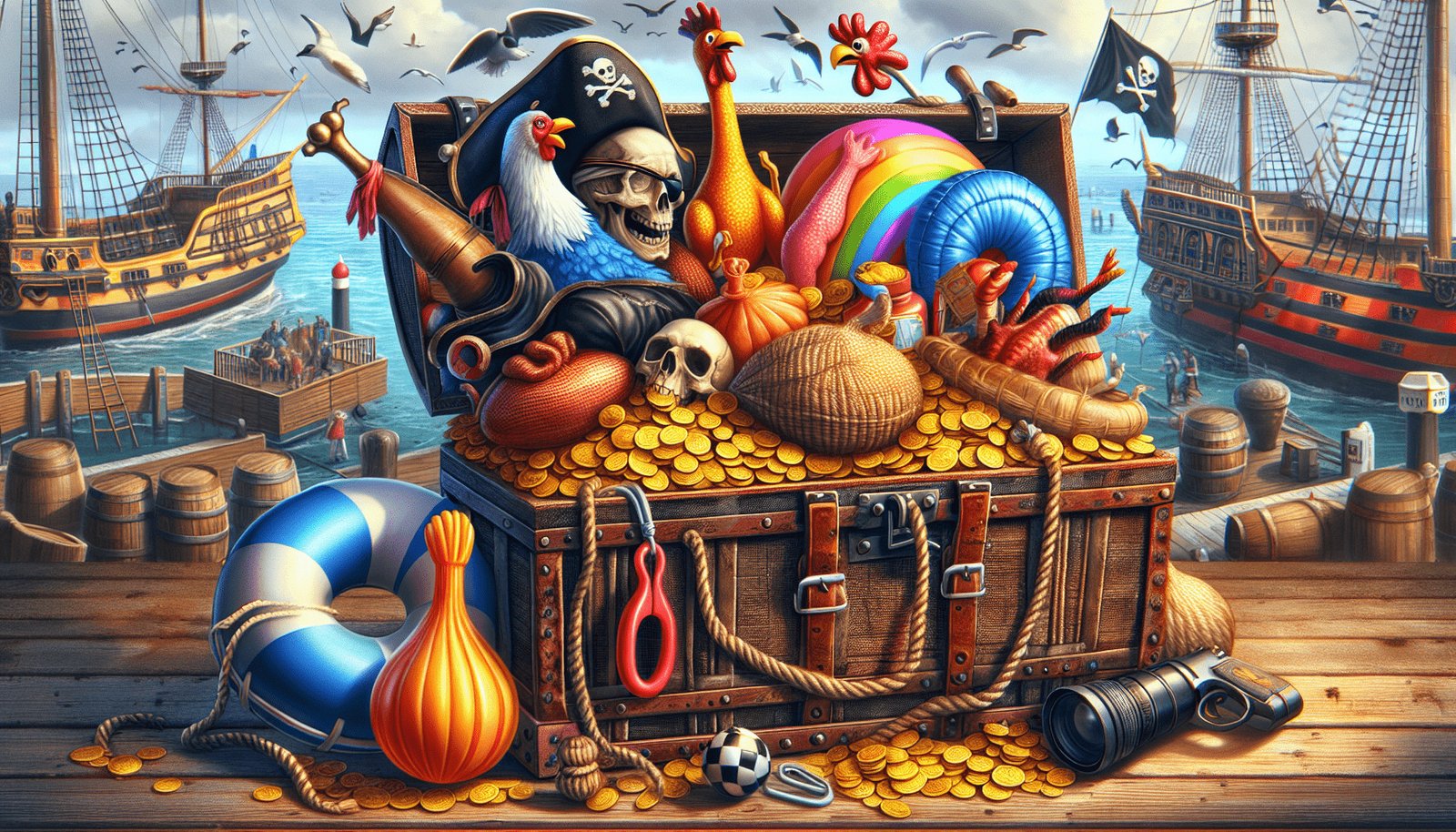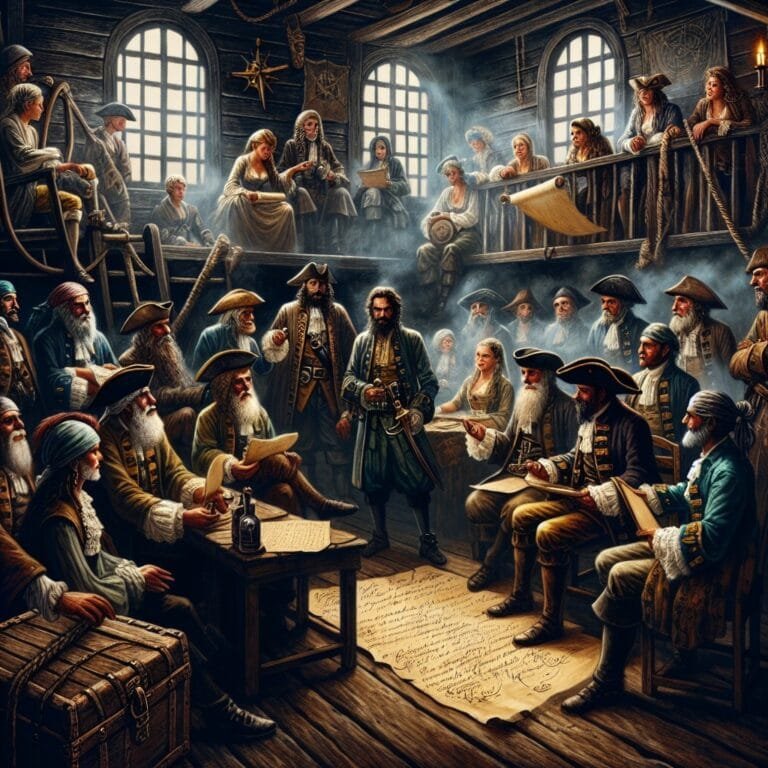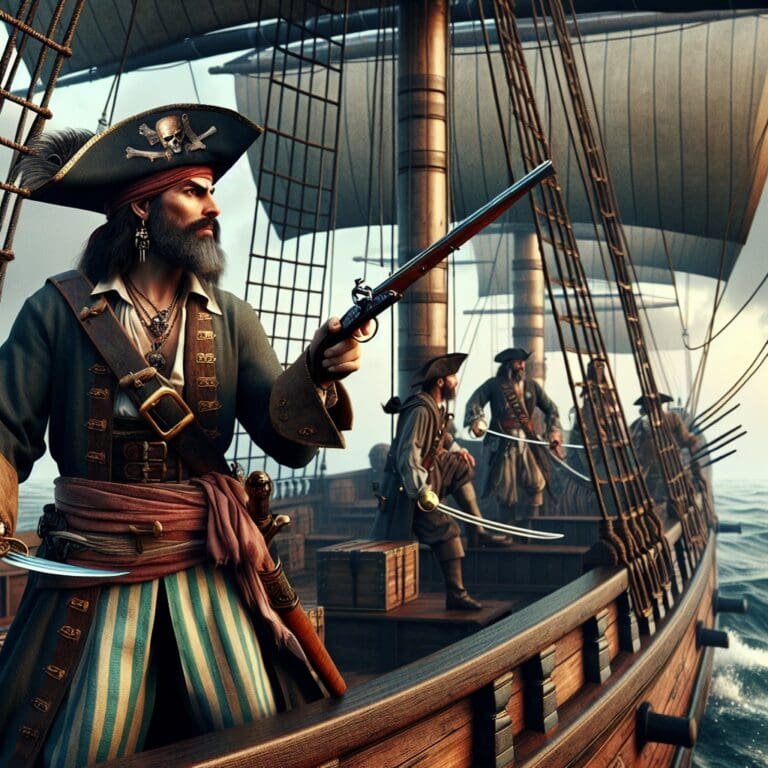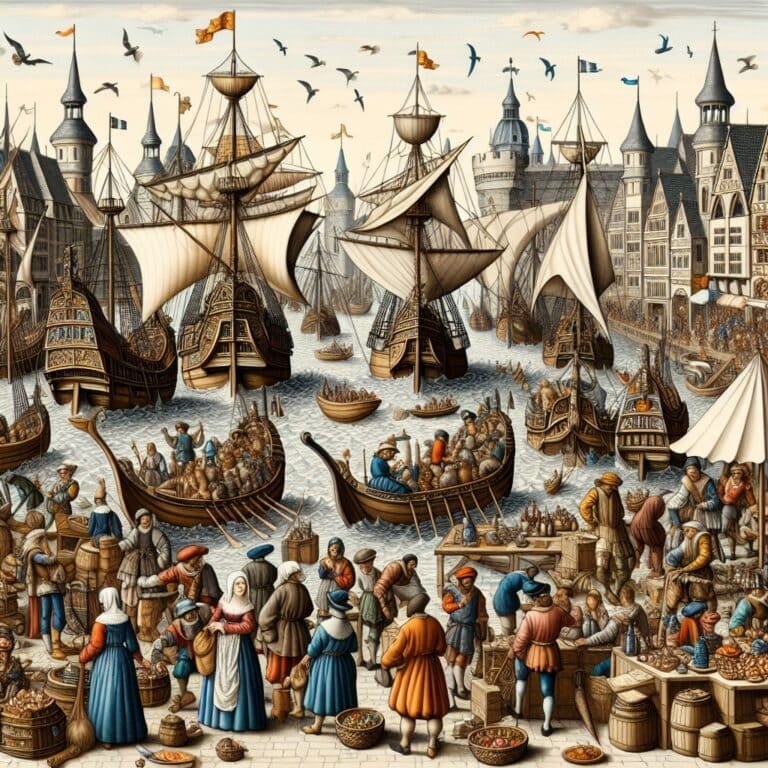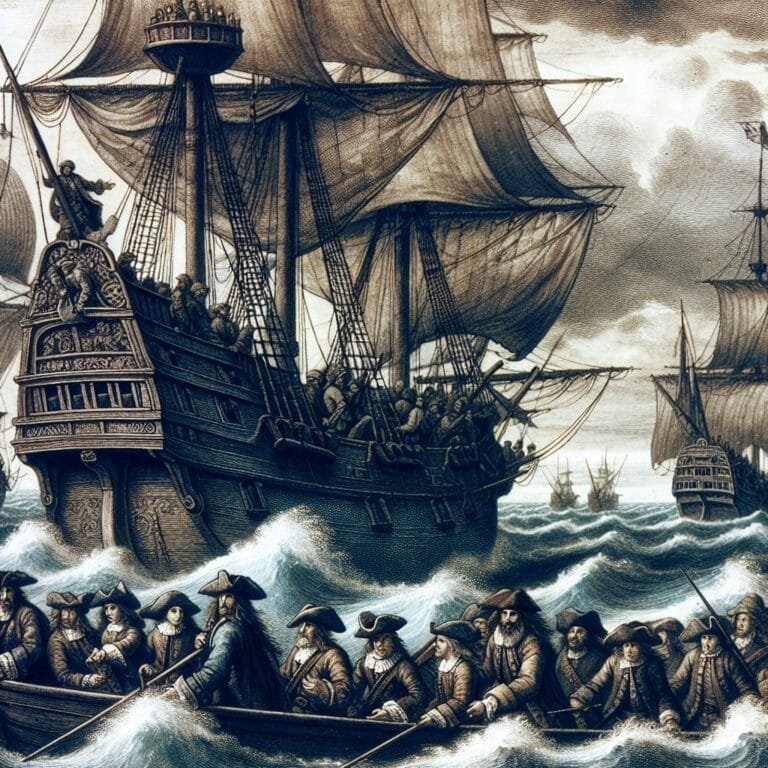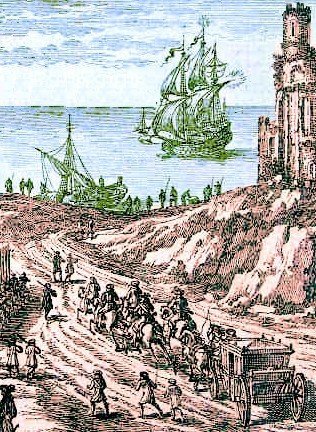Have you ever wondered what it was like to run a colonial economy with pirates frequently interrupting your morning coffee, looting your shipments, and generally being a pain in your powdered wig? Well, let’s take a stroll down the sun-bleached planks of history and see just how these high-seas hooligans impacted the delicate balance of goods, trade, and economic stability of colonial territories. Trust me, it’s a laugh riot – you know, if economic destabilization floats your boat.
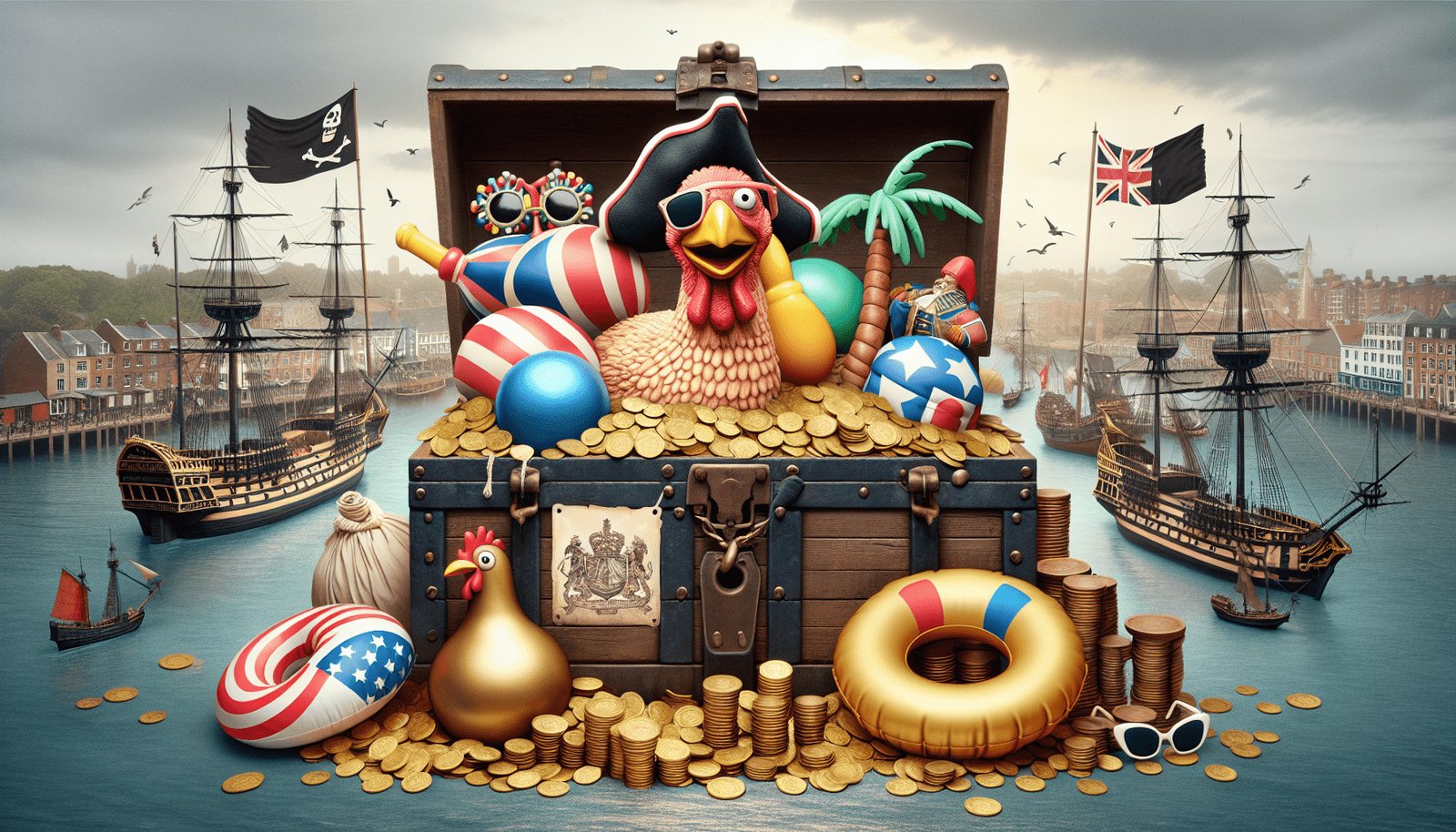
The Golden Age of Piracy: Economic Parasites with Flair
Ah, the Golden Age of Piracy. That period between the mid-1600s and early 1700s when pirates were basically floating economies unto themselves. Have you ever tried balancing a budget in a corset while fending off scurvy? No? Well, the colonial administrators weren’t doing it either, but they might as well have been for all the good it did them. Pirates, with their swashbuckling charm and total disregard for rules, had significant and surprisingly comical impacts on colonial economies.
Looters of the High Seas: Robbing Peter to Pay … Paul?
Pirates were essentially economic parasites with attitude problems. They didn’t produce anything themselves (unless you count terror and confusion as production), but boy, did they “redistribute” wealth. Pirates like Blackbeard, Captain Kidd, and Anne Bonny were the original proponents of the Five-Finger Discount, lifting goods off ships and onto their own ragtag vessels without so much as a sales receipt.
Imagine owning a merchant ship back then. You’d just loaded it up with goods destined for America, hoping to make a tidy profit selling textiles, spices, and other luxuries. Next thing you know, your ship’s been commandeered by a pirate crew whose hygiene standards are just as frightening as their weapons. That’s right, your precious cargo is now funding someone’s rum and parrot-buying spree. Your profits? Straight into the proverbial drink.
Pirates, Protection, and Prohibition: An Unlikely Triangle
So what did colonies do to combat this nautical nuisance? For starters, they had to pay for protection. Colonial governments shelled out significant sums for naval defenses, hoping to keep commerce flowing smoothly. Think of it as paying a hefty subscription fee for an antivirus software that’s only sorta kinda good at keeping the malware at bay. Merchants had to fork out extra cash for armed escorts and fortified ports, effectively making every shipment cost an arm, a leg, and possibly a spleen.
Colonial powers also implemented prohibitions on certain goods to stymie pirates. Because if there’s one thing history teaches us, it’s that people always follow the rules. Colonial authorities thought banning high-value items from being transported might make pirate life less appealing. Of course, this was about as effective as telling a teenager not to touch the thermostat. Pirates just became more creative, because where there’s a (ill-gotten) will, there’s a way.
Market Meddling: Pirates as Unintentional Regulators
Now let’s talk about market meddling. Pirates were like free-market fanatics with a penchant for chaos. They rudely inserted themselves into the delicate balance of supply and demand, creating scarcity in the weirdest ways. If pirates sunk a shipment of Spanish silver, the value of the remaining silver shot up like stocks after a favorable quarterly report. Pirates made certain goods rarer and hence more expensive, inadvertently lining the pockets of some crafty traders who knew how to hedge their bets.
Black Market Boom: When Pirates Make Politicians Look Honest
The black market thrived thanks to our rogue sea entrepreneurs. Pirates would sell stolen goods at prices no respectable merchant could match. They created an alternate economy where the only currency truly valued was bravery (or stupidity, depending on your point of view). Want a luxury silk gown at a fraction of the market price? Just head to the nearest pirate cove, cut a shady deal, and hope you don’t get scurvy from the journey.
Not only did this under-the-table trading create moral dilemmas (Do I buy from a pirate or remain poor and entirely respectable?), it also reshaped local economies. Merchants who couldn’t compete with pirate prices either adapted by engaging in a bit of “pirate-adjacent” trading themselves or went bankrupt. Colonial governments either turned a blind eye to black market dealings or tried to clamp down, often with hilariously inept results.
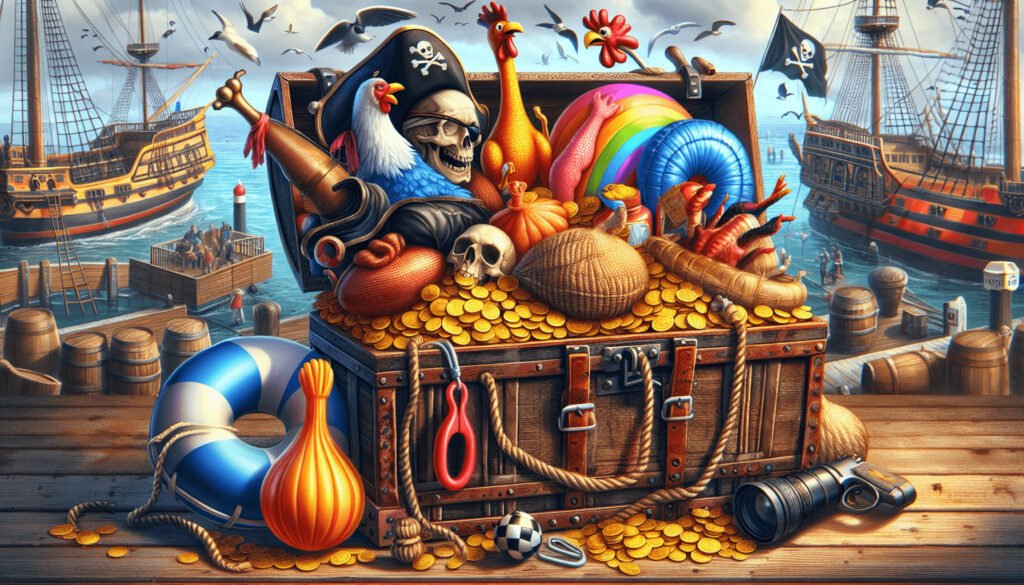
Social Dynamics: Pirates as the Social Outliers
Let’s not forget the unique social flavor pirates brought to colonial economies. They were the social outliers, the rebels without a cause (except the cause of easy money). Pirates operated outside the rigid colonial class structures, attracting runaways, former slaves, and adventurers.
Gender and Piracy: Equal Opportunity Villains
Piracy was one of the few “careers” of the time with a semblance of gender equality. Female pirates like Anne Bonny and Mary Read were every bit as ferocious as their male counterparts. In an age where women couldn’t own property or vote, piracy offered them a bizarre form of empowerment. Sure, they had to dress as men and live under grueling conditions, but at least they weren’t being told to embroider pillows for a living.
Women in piracy provided a glaring contrast to the stoic, powdered ladies of the colonies. Pirates didn’t bother with societal norms. Hell, they barely bothered with hygiene norms. This radical inclusion made the colonial elite huff and puff in outrage, inadvertently highlighting their own gender biases and societal rigidities.
Social Mobility: Dress Like a Pirate, Work Like a Pirate
Pirates also affected social mobility in colonial economies. In a world locked into status by birth, pirates created a weird meritocracy of plunder. Any able-bodied person could join a crew and elevate their status through sheer audacity and luck. Colonial peasants who could never dream of wealth suddenly saw an alternative – risky, sure, but far more exciting than tilling land.
Pirate success stories filtered back to land, creating both admiration and fear. Pirates were like the rock stars of their day, and their legends motivated many to abandon their tedious lives ashore for a chance at fortune and infamy.
Conclusion: Pirates – The Economy’s Unruly Children
In a twisted way, pirates forced colonial economies to adapt and innovate. They made sure no day was ever truly dull for colonial administrators and merchants. Their very existence pushed for stronger naval defenses, more adaptable trading strategies, and less rigid social structures. They spurred a bizarre form of economic Darwinism, where only the most adaptable survived.
So, while pirates might seem like nothing more than historical villains, their impact on colonial economies was profound, hilarious, and occasionally beneficial. As long as you weren’t the one getting looted, their antics were – dare I say – almost worth the chaos they wrought. After all, who doesn’t love a good tale of high-seas hijinks and economic pandemonium? Ahoy, and beware – history’s full of surprises, and pirates are perpetually lurking in the margins, ready to shake things up.
